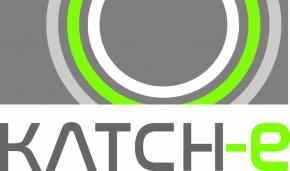
Project timeline: 2017-2020
The overall objective of the project is to develop multidisciplinary innovative training materials and curricula on the application of the Circular Economy (CE) and sustainability concept and principles in the design and development of products and product-services in the construction and furniture sectors.
KATCH_e is an ERASMUS+ knowledge alliance between Higher Education,
companies and research centres to build competences in the field of
product-service development for the circular economy (CE) and
sustainability in the construction and furniture sectors.
The project
focuses on circular economy (CE) because it concerns the transition
from a take – make – use – dispose model that depletes natural resources
and destroys ecosystems to a circular model where the value of
products, materials and resources is maintained in the economy for as
long as possible and the generation of waste is minimized. It has been
shown by several studies that the CE shows a great potential to
safeguard the environment and decouple economic development from the use
of resources; it has also a high potential to make business sense and
create jobs.
But are designers and other professionals involved in
product-service development (engineers, marketers, environmental
experts, and business and innovation managers) competent to tackle the
challenge of co-creating and producing “utility” in which the possible
services and performance, safety, collection, recycling and end-of-life
possibilities are taken into account, like cascading, refurbishing,
reuse or biodegradation, and replacing products with services? KATCH_e
focuses on construction products and furniture, and brings together
universities, research centres and companies from 4 EU countries to
cooperate in the following:
• Analysis of training needs, state of the art, trends and policies on design for CE and sustainability;
• Setting up a stakeholders network to support the transfer of knowledge and help secure the activities after the funded period;
•
Development and testing an innovative, problem-based multidisciplinary
Course, a MOOC and product-service development tools for CE and
sustainability;
• Implementation of the above in academic and company contexts, creating show cases.
KATCH_e thus contributes to the innovation of the higher education system and influence business strategies and the development of new products and services that follow circularity and sustainability principles.
Structure and methodology
The work plan of the KATCH_e project consists of 9 work packages (WP) that follow a logical sequence of activities and feed into each other.
Outputs
The project starts with an analysis of training needs,
state of the art, trends and policies in each partner country to
evaluate, in detail, the specific needs of education for CE and
sustainability in design in the target sectors and countries.
In
parallel, activities are developed to involve relevant stakeholders
throughout the project phases, with the aim to enlarge the feedback
basis and support the transfer of knowledge from companies and other
stakeholders to universities and vice versa.
The development of the
training resources and tools have an iterative nature even before the
testing phase due to the constant interaction with external
stakeholders, students and companies. After the completion of a “draft”
version of the Course, MOOC and Tools, the testing phase includes
face-to-face classes, seminars, workshops, etc., in universities and
internships in the partner companies, that take place in parallel in the
four project countries, and provide valuable insights regarding quality
and applicability and feedback to improve and update the materials and
the tools (and select those that are subject to programming), through
evaluation mechanisms. There are also case studies that constitute
pedagogic materials and direct benefits for the involved companies and
others that may get inspired by them.
The evaluation targets not
only the project short term tangible results (outputs), but also
outcomes, through adequate methods and indicators. Indeed, approriate
methods for an effective project management, quality control and a high
multiplying and dissemination effect are also adopted.
In summary, the main outputs are:
• Situation analysis report and executive summary
• Overview and analysis on CE and DfS in the target sectors
• Stakeholders´ networks in 4 countries
• 12 national and 1 transnational stakeholders workshops
• Curriculum of product-service development for CE and sustainability course
• Product-service development for CE and sustainability course
• MOOC Massive open online course
• Tools for product-service development for CE and sustainability
• Innovative product and product-service concepts
• Business strategies towards CE
• Didactic recommendations for learning approaches on CE
• Project website and knowledge platform
• Knowledge hub
• e-newsletters
• Final conference
Lead partner
The consortium is composed by 11 partners from 4 EU countries (Portugal, Spain, Austria and Denmark):
– 4 Universities
– 4 Research organizations
– 3 Industrial companies belonging to the target sectors of KATCH_e: construction products & materials and furniture
The lead partner is:
• LNEG – Laboratório Nacional de Energia e Geologia, I.P.
The other partners are:
• Universidade de Aveiro
• Amorim Cork Composites, SA
• Asociacion de Investigacion de las Industrias Ceramicas
• Prospektiker – Instituto Europeo de Prospectiva y Estrategia SA
• Universitat Jaume I de Castello
• Technische Universitaet Wien
• Österreichisches Ökologie-Institut
• Doka Gmbh
• Aalborg Universitet
• Højer Møbler A/S
Other partners
The other partners are:
• Universidade de Aveiro
• Amorim Cork Composites, SA
• Asociacion de Investigacion de las Industrias Ceramicas
• Prospektiker – Instituto Europeo de Prospectiva y Estrategia SA
• Universitat Jaume I de Castello
• Technische Universitaet Wien
• Österreichisches Ökologie-Institut
• Doka Gmbh
• Aalborg Universitet
• Højer Møbler A/S